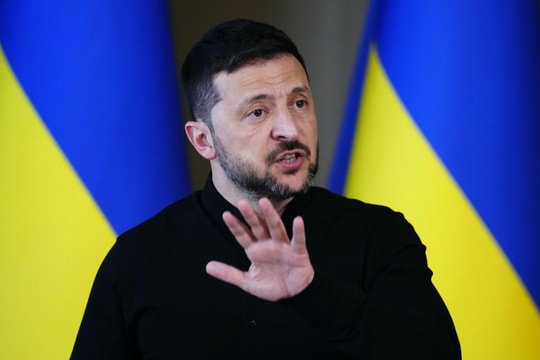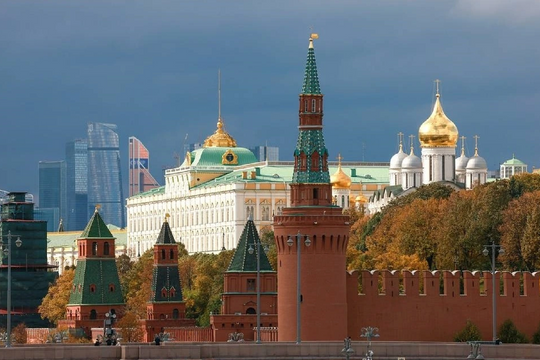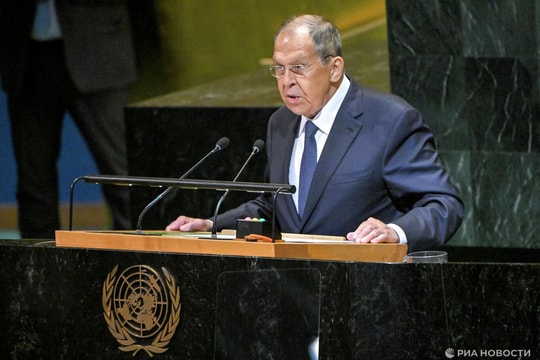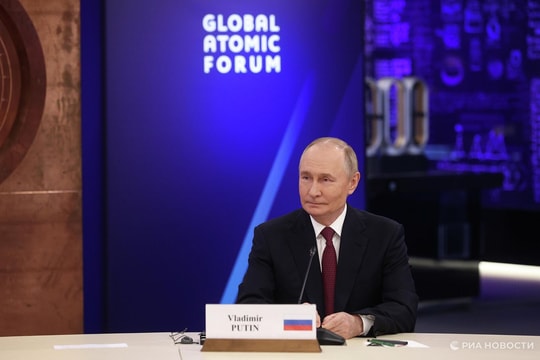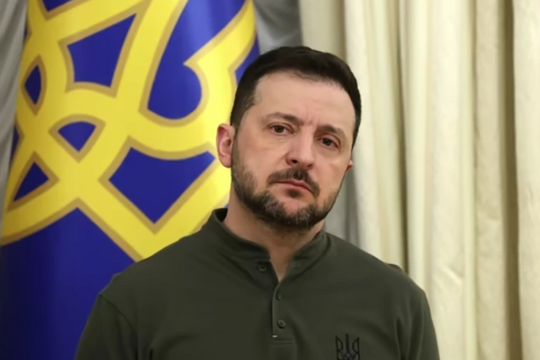Gas war: US focuses, Russia shifts
(Baonghean) - The US government is said to be applying increasingly drastic tactics to isolate Russia, especially in the oil and gas sector. Sanctioning the oil giant Rosneft, applying pressure to delay Russia's "Nord Stream 2" project... are just two of the measures Washington is implementing to "strangle" Russia's oil and gas industry.
Maximum pressure!
On February 18, the US announced sanctions against a subsidiary of Russian oil giant Rosneft, alleging that the company is assisting the government of Venezuelan President Nicolas Maduro. The trading company Rosneft SA is the subject of sanctions recently imposed by the US government. The US will freeze all US assets of Rosneft SA and its chairman. The sanctions are the latest in a series of actions by the Trump administration to force Venezuelan President Maduro from office.
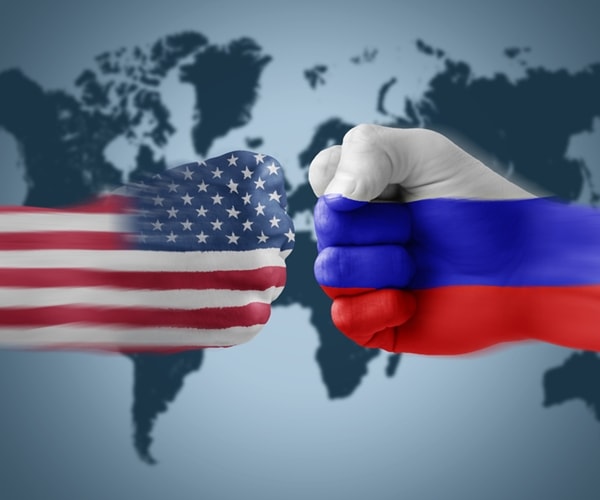 |
| The US is focusing its efforts on “suffocating” the Russian gas industry. Photo: Dreamstime |
The US sanctions against Russian entities related to Venezuela are not new. Previously, many Russian banks and individuals were also sanctioned by Washington for allegedly supporting the Maduro government. However, targeting the Russian oil giant this time is considered Washington's "two-pronged arrow". In addition to putting pressure on the Venezuelan government, the sanctions against the Russian energy company are clearly part of an overall plan to tighten the "golden ring" to restrain the development of an industry considered the backbone of Moscow. In other words, as long as there is a "pretext", Washington is ready to launch sanctions on the Russian energy industry at any time.
It should be recalled that the “Nord Stream 2” project connecting Russian energy and European countries is also a “thorn” in the eyes of the Americans. This is a giant project connecting Russia to Germany, across the Baltic Sea and through the territories of several other countries. This ambitious project is currently suspended due to US sanctions in December 2019 for the reason of “countering Russian influence and protecting the integrity of the European energy industry”. If completed, this project is expected to provide up to 55 billion cubic meters of natural gas per year to European countries. Of course, this also leads to countries that buy oil from Russia such as Germany, France, Belgium ... will be closer and closer to Moscow. On the contrary, the US plan to sell liquefied gas to allies on the other side of the Atlantic is also considered to be eliminated. Therefore, the US is trying every way to prevent “Nord Stream 2” from ever being opened. In addition to sanctioning companies involved in the project, US officials recently proposed providing up to $1 billion to countries in Central and Eastern Europe to help them reduce their dependence on Russian oil and gas.
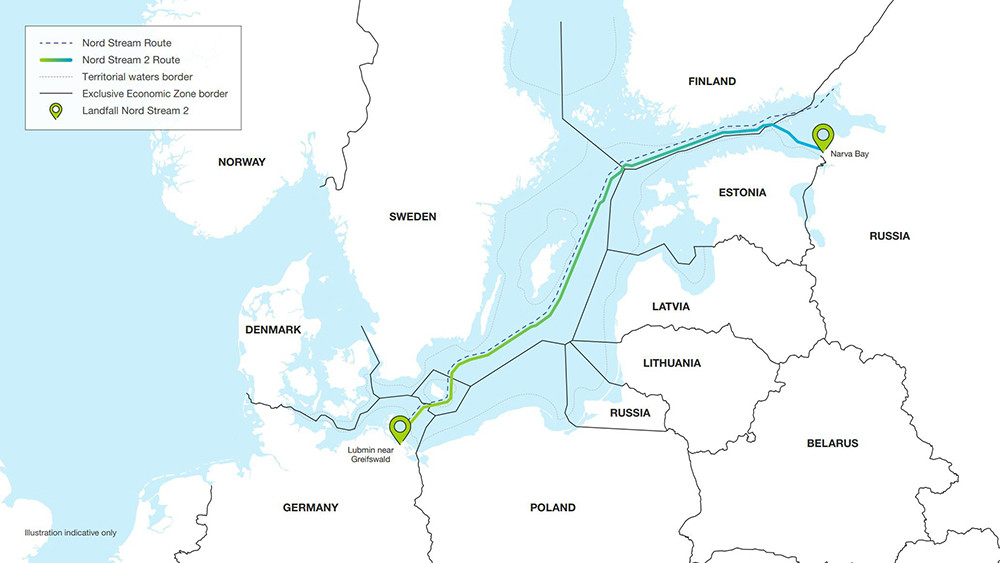 |
| The Nord Stream 2 project connects Russia to Germany. Photo: Gazprom |
It is likely that the US will not stop its measures to “stifle” the Russian oil and gas sector after applying a series of consecutive actions. Last December, the US Senate considered a bill called “Defending American Security from Kremlin Aggression Act” (DASKA). This law would allow the imposition of a number of tougher measures on the Russian oil and gas industry, punishing those who provide goods, services or finance to support the development of crude oil in this country.
The US has imposed a series of economic sanctions on Russia following its annexation of Crimea and the outbreak of conflict in eastern Ukraine in 2014. Those measures were codified and expanded when President Trump signed the Countering America’s Adversaries Through Sanctions Act (CAATSA) in 2017. The US sanctions have been seen as not achieving their intended purpose. However, provisions in the new DASKA law would take sanctions to a new level. For example, DASKA requires US companies to withdraw from any energy project if a Russian entity holds even a single stake. There are an estimated 150 energy projects in more than 50 countries that would be affected if the law is implemented.
Understandably, Washington's goal will be to exert maximum pressure, forcing the oil industry, which accounts for 40% of the Russian government's revenue, to collapse.
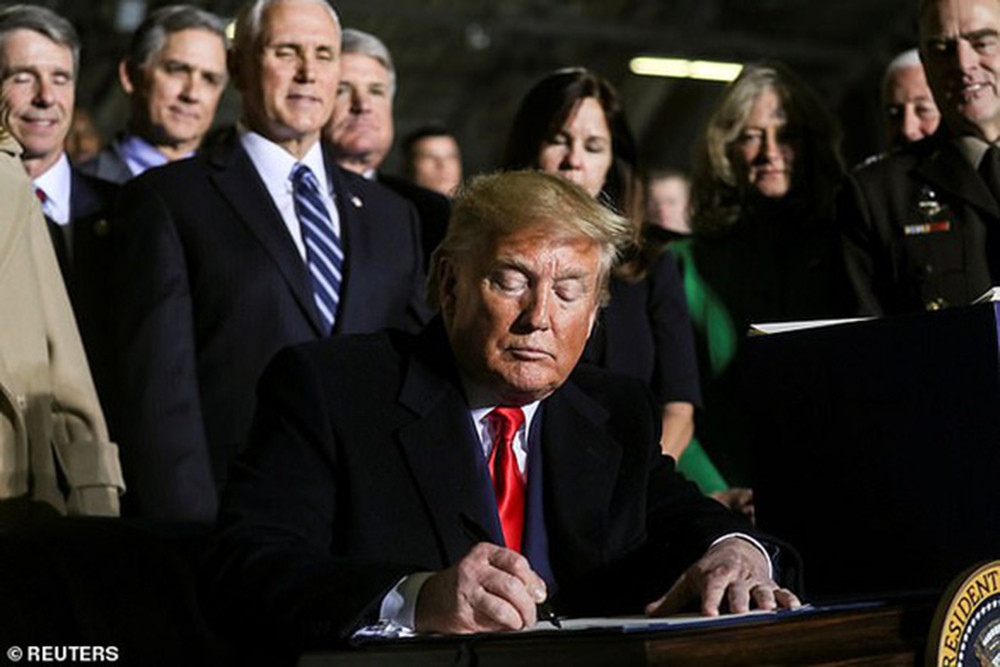 |
| US President Donald Trump signs the National Defense Authorization Act (NDAA). Photo: Reuters |
How does Russia resist?
The Russians may have been preparing for the sanctions-driven pressure campaign against the oil sector that the US has been using since 2014 in the wake of Crimea. Historically, Russia has gone to great lengths to conceal or disguise its strategic intentions, but on one front, Moscow appears confident it has the strength to compete with the US: the Middle East. Since US President Donald Trump outlined a new foreign policy of not getting involved in foreign conflicts unless they directly affect US interests and then withdrew from Syria, Russia has accelerated its efforts to increase its political and economic presence in the Middle East.
Russia's cooperation with the Gulf states is increasingly close. Evidence is that the Abu Dhabi National Oil Company (ADNOC) of the United Arab Emirates agreed last year to sell shares in Russia's Lukoil gas project. This is the first time a Russian company has been granted a concession by ADNOC and this is also Lukoil's first project in the UAE. In addition, ADNOC also said that the company has signed a strategic framework agreement with Gazprom Neft on upstream, downstream and technological cooperation. Observers say that these agreements, no matter how large, are only a small part of Russia's strategy in the region.
 |
| Russian President Vladiamir Putin visits the United Arab Emirates in October 2019. Photo: Khaleej Times |
A few years ago, Russia completed development plans to strengthen cooperation with a number of member countries of the Forum of Petroleum Exporting Countries including: Algeria, Egypt, Equatorial Guinea, Iran, Libya, Nigeria, Qatar, Russia, Trinidad & Tobago, UAE and Venezuela. In particular, Moscow believes that the three countries of Russia, Iran and Qatar will be able to form a “gas cartel” capable of influencing prices, fully controlling supply and demand to a certain extent to influence the global oil and gas market.
Not only that, recently, Russian officials announced that in the coming time, Russian oil and gas companies can triple their investment in oil projects in Iraq, reaching 20 billion USD. The scale of the project in Iraq is of course very large because according to assessments, Iraq has about 149 billion barrels of oil reserves (accounting for 18% of the total in the Middle East and 9% of the total in the world) and is currently the second largest oil supplier in OPEC, after Saudi Arabia. Since the US military actions in Iraq have caused many deaths, especially after the attack that killed Iran's General Soleimani, more and more Iraqi politicians and people have opposed the US. That is also part of the reason why Baghdad "reached out" to the "Russian bear".
 |
| Iraq is estimated to have about 149 billion barrels of oil reserves. Photo: Arab News |
A commentator on the Oil Price website wrote: “Russia is beating the US in the oil game in the Middle East.” It is unclear how much this assessment is correct, but it is clear that the US pressure tactic is unlikely to achieve the expected goal when Russia also has enough measures to deal with the “blows” from Washington.



